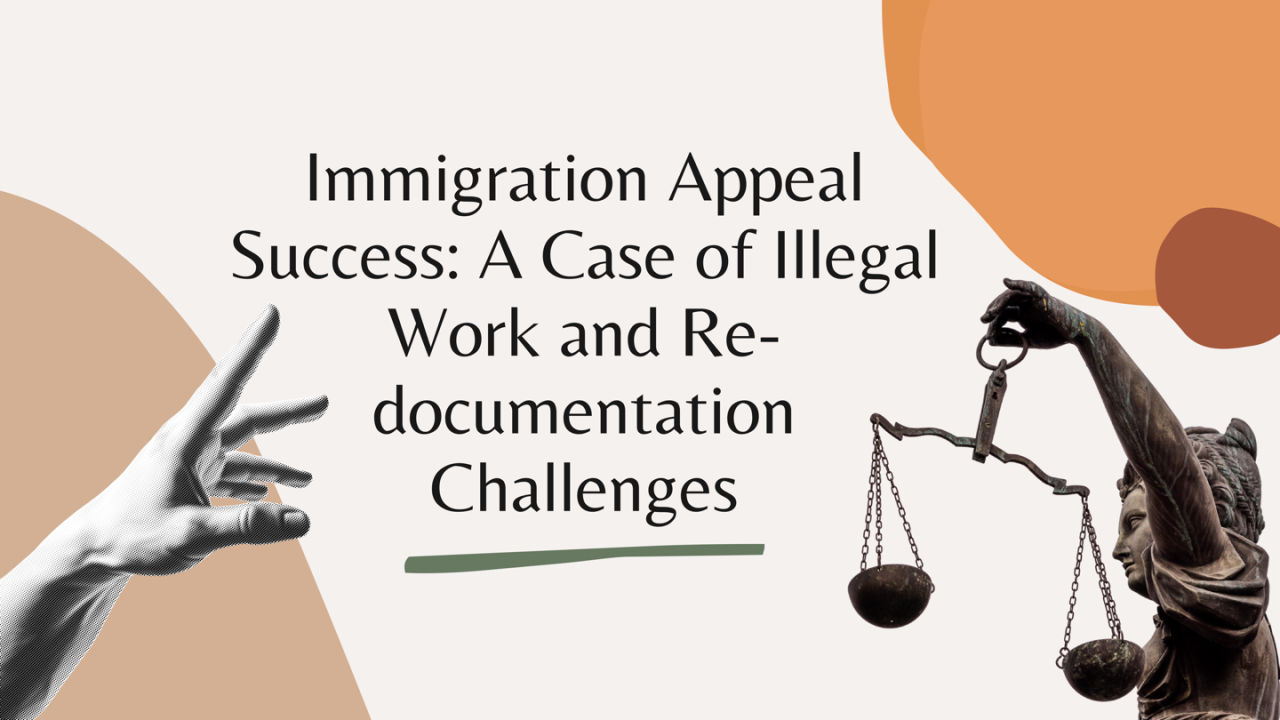A recent case involving an Albanian citizen highlights the complexities of immigration law in the United Kingdom. Representing this client for over a year and a half, the process has been long and tedious. The individual initially entered the UK illegally in early 2015 and, after multiple failed applications for legal status, voluntarily departed in 2023. Shortly after, he applied for entry clearance based on his relationship with his Polish partner, who holds settled status in the UK. This application was refused, leading to an appeal.
The client has been waiting in Albania to reunite with his wife, and the First-tier Tribunal initially dismissed the appeal. Dissatisfied, the appellant sought permission to appeal to the Upper Tribunal, which was granted on all grounds. The case was then reviewed by another judge.
The appeal centered on six primary grounds:
- Illegal Work and Immigration Rules: The appellant contended that the judge erred in interpreting that illegal work significantly frustrates the Immigration Rules, citing the Secretary of State’s guidance and previous case law.
- Assessment of Immigration Rules:
- The judge’s evaluation focused on the fact of illegal work without considering its significance or the appellant’s voluntary disclosure.
- Mitigating Factors:
- The appellant argued that his voluntary admission of illegal work, the nature of his work, and his cessation of work since 2020 should have been considered mitigating factors.
- Guidance and Precedent:
- The appellant highlighted the judge’s failure to consider relevant case law and guidance adequately.
- Public Good and Immigration Rules:
- The appellant challenged the judge’s conclusion that his exclusion was conducive to the public good without considering his previous legal attempts to regularise his status.
- Rationality of Decision:
- The appellant questioned the rationality of the judge’s decision under the relevant immigration rules.
The reviewing judge noted that the primary issue was whether the Secretary of State could refuse entry clearance solely based on the appellant’s illegal entry and work in the UK. The refusal letter cited several reasons, including numerous frivolous applications and failure to report while on immigration bail, which the judge found were not supported by sufficient evidence.
The judge emphasised that working illegally, while a breach of immigration law, was not an aggravating factor warranting refusal of entry clearance under the Secretary of State’s guidance. The judge highlighted the public interest in individuals seeking to regularise their status and noted that the appellant’s voluntary departure and application from outside the UK demonstrated a positive effort to comply with immigration laws.
The outcome of this case, though unreported, has significant implications for clients who have lived in the UK illegally and then initiated a redocumentation process. Often, the Home Office would refuse such applications on the grounds that the client previously breached immigration rules or worked illegally in the UK, considering this an aggravating factor. Our argument was that the finding that illegal work, in and of itself, significantly contravenes the intention of the Rules is arguably wrong in law.
First, the guidance by the Secretary of State for the Home Department (‘the SSHD’) named “Suitability: previous breach of UK immigration laws Version 6.0” does not stipulate that illegal work is an aggravating circumstance. If illegal work were clearly an aggravating circumstance, it would be included in the non-exhaustive list of such circumstances. The closest the guidance comes to this is indicating that working illegally shortly after arrival as a visitor may be an aggravating factor, which did not apply to this case.
Second, the First-tier Tribunal judge was referred to ZH (Bangladesh) v Secretary of State for the Home Department [2009] EWCA Civ 8, which held that illegal working is part and parcel of unlawful residence in the UK. The judge’s failure to engage with this authority led to ‘double counting’ the appellant’s illegal work and unlawful residence.
Third, the question was not whether the illegal work should be discounted but whether it was so significant as to frustrate the intention of the Rules. The judge failed to assess this properly.
Finally, the First-tier Tribunal judge ignored the caution from PS (paragraph 320(11) discretion: care needed) India [2010] UKUT 440 that decision-makers must exercise great care in assessing aggravating circumstances and consider the public interest in encouraging individuals unlawfully in the UK to leave and seek to regularise their status by applying for entry clearance.
Ultimately, the Upper Tribunal found that the First-tier Tribunal judge had made a material error of law. The decision to dismiss the appeal was set aside, and the appeal was allowed. This case clearly indicates that illegal work itself is unlikely to form an aggravating factor justifying refusal under the suitability requirement.


